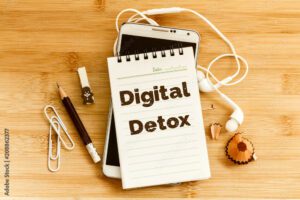December has arrived. The holiday season is here, and the students are getting squirrelly. Educators are, no doubt, pulling out all the tricks from their toolbox to prevent students from climbing the walls. It is the season for tired teachers to crawl toward the finish line of the first semester. Demanding schedules with summative assessments, field trips, concerts, and incentives, to name a few, leave teachers feeling exhausted. Juggling this busy timetable makes it challenging to find a moment for self-care. However, it is crucial for educators to prioritize their well-being to maintain effectiveness and prevent burnout. This article will delve into various approaches to self-care that take a small amount of time but make a big impact on the way a person feels upon completion.
#1 TAKE A BREATH
Mindful breathing can help reduce stress immensely. Incorporate short mindfulness or deep-breathing exercises throughout the day. When that Apple Watch vibrates and says it’s time to breathe, actually tap it and take one minute to do it! Even a few minutes of focused breathing can help reduce stress.

#2 UTILIZE MICROBREAKS
Just like students need brain breaks, educators do, too! Be intentional in how you spend the few moments of free time you have each day by planning in some microbreaks with your students during class, or pause for a moment between classes and prep time to take short. While you are greeting students at the door when they change classes or return from special areas, use this time to do a few stretches or engage in a quick relaxation technique.

#3 PRACTICE MINDFUL EATING
It has been said that teachers are the fastest eaters on the planet. There are usually a dozen things that teacher needs to take care of during their lunch break which might be a full twenty-five minutes, if they are lucky. However, taking a few moments to savor your meals without multitasking can contribute to a sense of relaxation.

#4 ENGAGE IN GRATITUDE JOURNALING
Educators often find themselves putting out fires with water guns throughout the day, especially during the holiday season when chaos is the name of the game. It is easy to lose sight of the great things happening inside the classrooms when there is likely so much pandemonium occurring in the building. Dedicate a few minutes each day to jot down things for which gratitude is felt. Focusing on positive aspects can help shift negative feelings and mindset.

#5 SET BOUNDARIES
Eat, sleep, plan/grade/teach, repeat. This is a routine that is all too familiar for most educators. In order to survive the hectic holiday season, educators must take time to exist beyond the work that they do every single day. Clearly define work hours and avoid taking work home whenever possible. Create a designated workspace and separate it from personal space.

#6 IMPLEMENT A DIGITAL DETOX
Constant e-mail notifications, vibrations on the phone going off because someone is messaging in the grade level group chat, and the parent communication app seems to buzz every five minutes. It is imperative for educators to set aside specific times during the day to disconnect from emails and digital devices. Constant connectivity can contribute to stress. Reserve weekends for relaxation and personal activities instead of being tied to the computer or phone the entire time. Avoid overcommitting to work-related tasks during this time.

#7 CELEBRATE SMALL VICTORIES
On busy days where there is a holiday movie in the morning and an author coming to do a reading in the afternoon, teachers might be left with very little instructional time, and they are still expected to fully engage their students in learning. Any teacher who can pull something like that off needs to celebrate themself! It is important to acknowledge and celebrate achievements, no matter how small. This positive reinforcement can boost morale.

Remember, it is not selfish to practice self-care. It is also individual, and what works for one person may not work for another. The key is to find small, sustainable practices that align with your preferences and schedule. Regular, intentional moments of self-care can contribute significantly to overall well-being.

